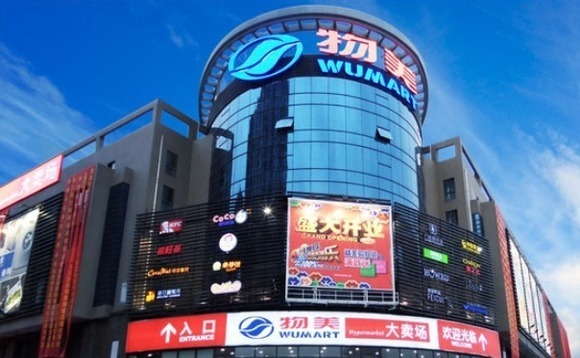
Ascendent invests $500m in Chinese supermarket retailer

Ascendent Capital Partners has made by far its largest investment to date, committing $500 million to Chinese supermarket retailer Wumart ahead of a planned Hong Kong IPO.
The private equity firm will contribute $150 million from its third China fund, which closed at just over $1 billion at the end of last year. A further $50 million will come from Fund II. This will be the last investment from Fund II, which closed at $600 million in 2015. The deal is based on an enterprise valuation for Wumart of approximately $2.1 billion.
The remaining $300 million is co-investment. Ascendent sourced capital from its own LP base and marketed the opportunity to the wider investor community. The co-investment portion was significantly oversubscribed, according to a source familiar with the situation.
Ascendent constructs relatively concentrated portfolios, sourcing deals by forging relationships with entrepreneurs and management teams, advising on value-add initiatives, strategic alliances, and acquisitions, and contributing capital when appropriate. Wumart fits this profile, with the private equity firm advising on the company's acquisition of German retailer Metro's China operation.
Metro announced in October 2019 that it would sell the business Wumart for an enterprise valuation of EUR1.9 billion ($2.1 billion). Several minority investors divested a 10% stake in a separate process and then Metro took a 20% interest in the combined Wumart-Metro entity. The deal closed in April.
Metro launched operations in China in 1996 and established a network of 97 outlets, most of them directly owned. The company served eight million customers and generated EUR2.8 billion in sales and EUR202 million in EBITDA for the 2019 financial year. Metro decided to divest the business as part of broader plans to focus on wholesale operations.
Founded in by Wenzhong Zhang in 1994, Wumart listed in Hong Kong in 2003. It withdrew from the bourse in 2016, citing tougher commercial conditions driven by rising labor costs and competition from online and offline peers. Zhang received a 12-year jail sentence for corruption in 2009 but only served four years and was cleared of all charges in 2018.
Parent company Wumart Group operates more than 1,800 hypermarkets, supermarkets, convenience stores, department stores, and home improvement stores, with annual sales of more than RMB50 billion ($5.7 billion), according to a McKinsey & Company profile. Subsidiaries include Wumart, Merry Mart, Xinhua Department Store, and B&Q. Most of them are based in the Beijing-Tianjin area. The combined Wumart-Metro entity has around 600 stores, the source said.
The company also owns Dmall, an online-to-offline retail platform that partners with more than 100 large retailers and 10,000 brick-and-mortar stores in China. Its app has more than 80 million registered users and 18 million monthly active users.
Speaking to McKinsey in March, Zhang explained how Wumart responded to the coronavirus pandemic. The initial focus was on fresh groceries, consumer staples, and protective equipment. Approximately 3,000 O2O community collection stations were established in response to demand for home delivery and contactless pick-up.
"We believe the coronavirus crisis has brought forward the timeline for adoption of omnichannel grocery services, such as remote ordering and pick-up, by at least one year. Keeping track of how online ordering preferences change under lockdown is also essential; customers sought to vary their diet across a balance of ready meals and home-cooking, and there were significant shifts among top-selling brands," he said.
Earlier this year, Ascendent agreed to make a full exit from Chinese dairy producer Ningxia Harmony Dairy Development with New Hope Dairy set to buy the business for an enterprise valuation of RMB1.7 billion ($240 million). It acquired a 45% interest in the business for RMB300 million in 2014 from Xinhua Department Store, which had deemed the asset non-core.
Latest News
Asian GPs slow implementation of ESG policies - survey
Asia-based private equity firms are assigning more dedicated resources to environment, social, and governance (ESG) programmes, but policy changes have slowed in the past 12 months, in part due to concerns raised internally and by LPs, according to a...
Singapore fintech start-up LXA gets $10m seed round
New Enterprise Associates (NEA) has led a USD 10m seed round for Singapore’s LXA, a financial technology start-up launched by a former Asia senior executive at The Blackstone Group.
India's InCred announces $60m round, claims unicorn status
Indian non-bank lender InCred Financial Services said it has received INR 5bn (USD 60m) at a valuation of at least USD 1bn from unnamed investors including “a global private equity fund.”
Insight leads $50m round for Australia's Roller
Insight Partners has led a USD 50m round for Australia’s Roller, a venue management software provider specializing in family fun parks.








